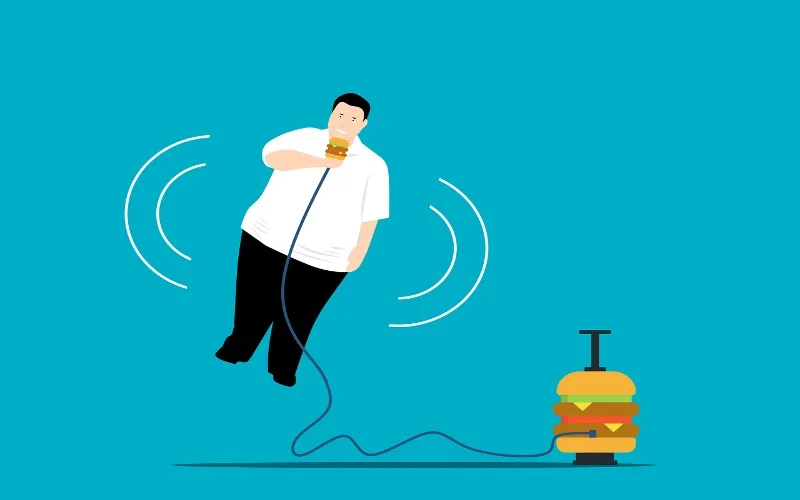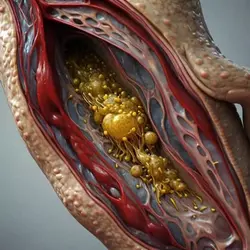LDL cholesterol is also known as bad cholesterol. As the name suggests, it is bad cholesterol which is not good for your overall health and especially in the case of our cardiovascular health. According to medical research, the higher level of LDL cholesterol can be a serious issue and leads to some complicated health disorders where heart disease and stroke are top of the list. That’s why it becomes really important first to know what LDL cholesterol actually is and how you can properly control it for your general health. This important article is all about. Here you will get complete information about LDL cholesterol and effective management strategies. So without any wastage of time let’s get started.
What is LDL Cholesterol?

Low density lipoprotein which is commonly known as LDL cholesterol is actually one of the 5 primary types of lipoproteins that carry lipids that are fat molecules throughout the body. Now let’s try to understand what lipoproteins actually are. They consist of fat and protein. What they do is an important question at the moment. Lipoproteins help to transport cholesterol through the blood circulatory system. We are here to talk about cholesterol, now try to understand what it actually is. Cholesterol is a fat-like substance that is waxy in nature. It is really important for your body in order to create cells, generate hormones and produce vitamin D.
The issue starts to arise at that time when the cholesterol level starts to increase and when this happens it can build up in the walls of the arteries. This deposit of LDL cholesterol in the blood is known as plaque. In this case, a disease known as atherosclerosis comes into existence. It is because these deposits start blocking the arteries and reduce their flexibility, that’s why this condition arises. In this way if clots develop and block a restricted artery, the situation can lead you towards serious health issues like heart attack or stroke.
Risk Associated with High LDL Cholesterol
As we said earlier, a higher level of LDL cholesterol is not acceptable at all for your good health. It can increase the chances of creating some fatal cardiovascular diseases. Let’s have a look.

Atherosclerosis
Atherosclerosis comes into existence when LDL cholesterol starts to build up in the arteries. When this happens the arteries start to thick and narrow. This situation reduces the capacity of the flow of blood to the heart and other organs.
Heart Attack
The situation of heart attack is created at that time when the deposits or buildups break down and after that they can create a blood clot. These blood clots can block an artery from providing blood to the heart. That’s why a person experiences a heart attack.
Stroke
Another fatal disease that can be the result of higher levels of LDL cholesterol in the blood is stroke. The blood clots that come into existence due to the deposits of LDL cholesterol that block an artery in the brain can be the result of a stroke.
Peripheral Artery Disease
This disease is created at that time when the deposits start building up in those arteries that carry blood to the limbs, especially the legs. In this way a person feels discomfort and issues in the movement.
Chronic Kidney Disease
Another bad effect of high cholesterol level is on the kidneys because it can harm small blood vessels in the kidneys. In this way its ability to filter waste materials from the blood reduces to a greater extent.
Factors Contributing to High LDL Cholesterol
It is really important to know and find those elements that actually are the major contributing factors in order to create high LDL cholesterol. You can go for better management and treatment when you know about the root causes. Let’s find out.

Diet
Diet is one of the major factors to create high cholesterol levels. Those foods that contain higher levels of saturated fats, cholesterol and trans fats can raise the level of LDL cholesterol. Now you must be thinking at the moment: what are the foods that actually contain these types of elements? The common examples are red meat, fried foods, full fat dairy products and processed or manufactured snacks.
Lack of Exercise
The lack of physical activity in your life can actually contribute to creating many health issues like weight gain. Weight gain is one of the major contributing factors in order to increase LDL cholesterol level and decrease HDL which is good cholesterol.
Obesity
When you store extra fat around your belly it means you are inviting to increase LDL levels. So try to reduce your weight as soon as possible. It is not only compulsory in this case but also for your overall health.
Smoking
According to research smoking can damage the walls of your blood arteries. In this way it provides a suitable atmosphere to build up deposits in the blood arteries. That’s why your HDL cholesterol level decreases which is not a good sign.
Genetics
Genetic factors are also one of the reasons for high cholesterol levels. Family hypercholesterolemia is a hereditary disorder that causes extremely high LDL cholesterol levels. When this situation develops it can lead to heart diseases even at a young age.
Age and Gender
Cholesterol levels mostly grow with age. It is observed that generally women have lower levels of LDL as compared to males of the same age before menopause. After menopause, LDL levels in women start to increase in most of the cases.
Diabetes
Diabetes is also one of the root causes of higher LDL levels. The increase in blood sugar level reduces good cholesterol which is HDL levels. Besides that, it also harms the lining of your arteries as well.
How to Manage and Decrease LDL Cholesterol
It is really important to manage the level of LDL cholesterol in order to reduce the chances of heart diseases and many other conditions related to that. Here in this part of the article we are going to talk about some of the effective management strategies. Let’s have a look.

Healthy Diet
Increase Your Fiber Consumption
Try to make sure that you are consuming those foods in your diet that are rich in fiber. It is because fiber rich foods help to decrease the absorption of cholesterol into your blood. Lentils, oats, beans, pears and apples are one of the best foods that contain soluble fiber.
Choose Healthy Fats
Fats are also important for your body in order to perform necessary functions but remember only healthy fats are required. Always give preference to healthy fats over saturated fats. The common examples of healthy fats are avocados, olive oil, seafood like Salmon and mackerel. It is important to avoid consuming processed food items because they mostly have trans fats.
Eat Foods and Vegetables
If you want to become healthier then try to increase your focus on plant based foods. Eat fruits and vegetables as much as you can. There are a lot of examples of plant based foods like nuts, whole grains and seeds. All these items are helpful in reducing LDL cholesterol level.
Reduce Dietary Cholesterol
It is important to reduce those food items that have cholesterol. The important thing here to understand is that the effect of dietary cholesterol on blood cholesterol level can be different from person to person. Still it is recommended to reduce the consumption of those food items that contain cholesterol such as seafood and organ meats.
Exercise regularly
Physical activity on a regular basis in your life is really important as blood in your body. With the help of regular exercise you can increase HDL cholesterol and decrease LDL cholesterol to a greater extent. For this purpose try to take moderate intensity aerobic exercises for at least 150 minutes every week. In this case brisk walking or walking quickly or 75 minutes of difficult physical activity such as running is really helpful in your cause. Besides that, strength training exercises are also helpful in decreasing LDL levels and it is recommended at least two times a week.

Maintain a Healthy Weight
You can know the importance of a healthy weight because even a small amount of weight loss can decrease your cholesterol. You can do this with a balanced diet and with the help of regular exercises.
Stop Smoking
If you stop smoking it can also help to increase your HDL cholesterol level. Besides that, there are also other benefits that you can get for eliminating smoking from their life. You can recover your heart rate and blood pressure that you gained from smoking cigarettes within 20 minutes of stopping.
Reduce Alcohol Consumption
Drinking extra amounts of alcohol can also lead to increased LDL cholesterol level. It is better to stop drinking alcohol and if it is not possible then try to reduce its quantity. It is really important for your overall quality of life.
Take Medicines
You can reduce LDL cholesterol level with changes in Lifestyle and if the situation doesn’t turn into your favor then you have to go for medicines. Just go to your professional health physician and get recommended medicines in this case. You can use Statins that are considered one of the most effective and commonly used medicines for reducing cholesterol level. There are also some other alternative medicines that are helpful are cholesterol absorption inhibitors, bile acid sequestrants and PCSK9 inhibitors.
Monitoring and Regular Checkups
Due to the complexity and nature of the disease, it is really important to monitor cholesterol level on a regular basis. Those people who are at higher risk of developing heart disease must make sure to do this on a consistent basis. In this scenario there is a blood test that is called a lipid panel that can be used in order to examine your cholesterol level. A professional health physician can recommend this. This test is a comprehensive test because it can measure total cholesterol, HDL cholesterol and LDL cholesterol and triglycerides.

It is highly recommended that every person should have an exam on their cholesterol level every 4 to 6 years, starting from the age of 20. If anyone is at a higher level of risk of developing heart disease, they have to increase their examination period from 4 to 6 years due to the complexity of the disease.
Health Tips for Decreasing LDL Cholesterol
We have explained in a comprehensive way about effective management Strategies for reducing LDL cholesterol level. Here in this part of the article you can get some extra tips that keep your cholesterol level in check.
Mostly Cook at Home
It is better to cook your foods at home for preparing meals. It is because you have to control and manage ingredients that are healthier for you. Try to focus on baking, steaming and grilling instead of frying.
Check out Ingredients in the Packing
When you go shopping for food items it is really important to pay close attention to the nutritional facts provided in the packaging. The important thing is that you have to check out whether they have saturated fats, trans fats and cholesterol and if it is found then what is their amount.
Add Plant Sterols and Stanols
The presence of sterols and stanols in the plant helps to reduce the absorption of cholesterol in the intestine. They are mostly found in fortified foods such as orange juice, margarine and those drinks which are made from yogurt.
Take Green Tea
It is better to drink green tea instead of the normal one which most people are consuming. According to the research it is found that the presence of antioxidants in green tea helps to decrease the level of LDL cholesterol.

Stay Hydrated
Hydration is not only compulsory for your overall quality of life but also important for the health of the heart. That’s why it is recommended to drink plenty of water throughout the day. By keeping yourself hydrated you can promote functions of the organs and can get help in order to maintain healthy blood vessels.
Get Enough Sleep
According to the research, if you are not getting enough sleep and rest then it can have a negative effect on your cholesterol level and consequently the risk of heart disease increases. It is very crucial that you must take at least 7 to 9 hours of quality sleep each night.
Conclusion
LDL cholesterol is important in small quantities in order to perform its various functions but the higher LDL cholesterol level is really a havoc for your overall health as it can increase the chances of heart diseases as well. In this whole scenario it is really important to check out what are the root causes of increasing LDL cholesterol levels for better managing it. By following effective steps that we have talked about deeply in this article you can boost HDL cholesterol level and reduce LDL cholesterol level.
Make sure that you are taking regular physical activities and eating a healthy diet. Besides that, it is also important to reduce drinking alcohol and stop smoking. Regular monitoring is the key to success in order to manage and keep your cholesterol level in check. By changing lifestyle and with use of medicine if necessary you can get rid from the issue of increasing cholesterol level.
